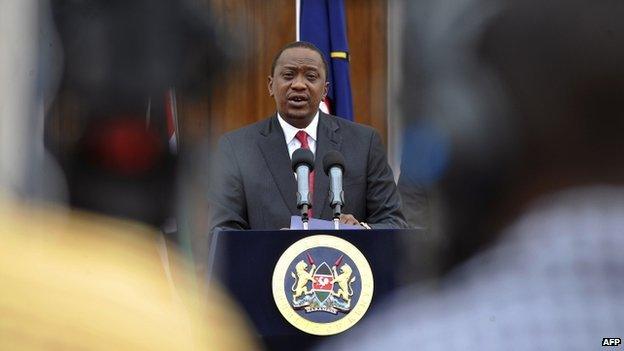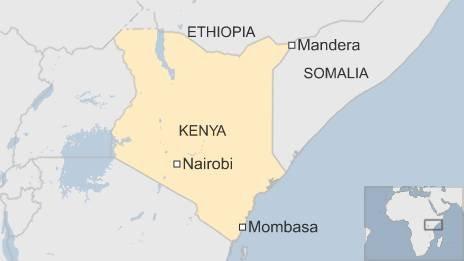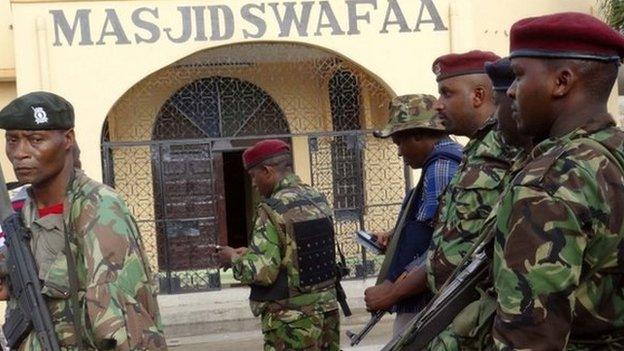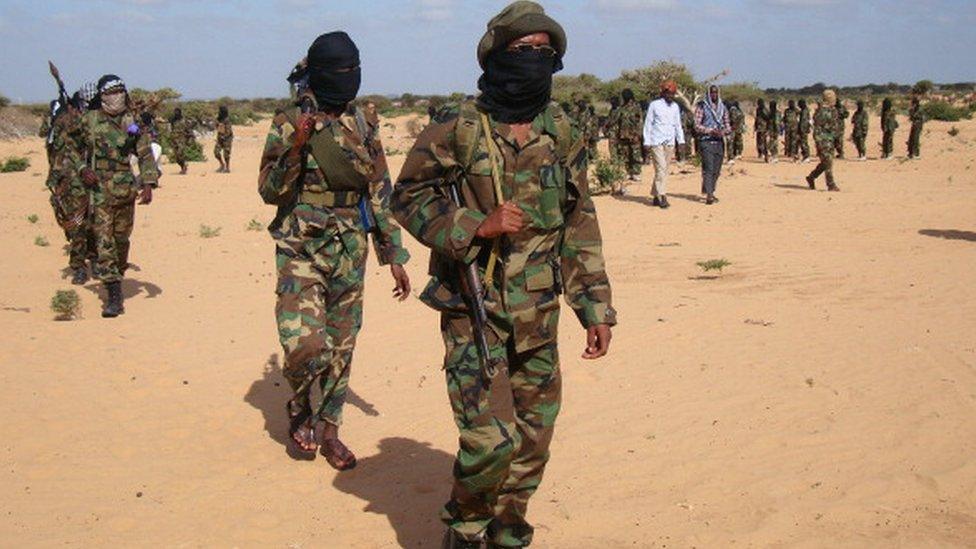Al-Shabab attacks put Kenyan government under pressure
- Published

Increasing al-Shabab attacks have led to demonstrations over lack of security in Kenya
By attacking a bar in Wajir, a town used by the Kenyan military, and by singling out non-Muslim victims in two brutal attacks near the border with Somalia, al-Shabab is hoping to send a stark, and chilling message, both to the Kenyan Government, and to the public.
Al-Shabab labels the presence of Kenyan troops, part of a wider African Union force in Somalia, as an "occupation".
It claims the recent air strikes by Kenyan fighter jets on al-Shabab targets in Somali territory amount to "aggression" and have caused "atrocities" among the civilian population.
The Somali-based group, which much of the world labels a terrorist group, wants to try and create the impression that the attacks are a direct consequence of the presence of Kenyan troops, and Kenyan airstrikes, in Somalia.
But the message from Kenya's President Uhuru Kenyatta was uncompromising.
At one time during his televised address, in language that reminded me of the language of President George W Bush in the wake of the 9/11 attacks in New York, the Kenyan president told his people they were either with his government, or with the "terrorists".

Non-Muslims were also singled out in an attack on a bus on 22 November

The Kenyan president echoed the language that followed the 9/11 attacks in his response
Mr Kenyatta said his country was "at war" and fighting a "war on terrorism".
His message to al-Shabab was clear: Kenyan troops will continue fighting you in Somalia, and said he would "intensify" the war.
Before Kenyan troops were deployed in Somalia in October 2011 there were several attacks in the Mandera region, and other parts of northern Kenya, attributed to al-Shabab.
But in the past few days the audacity and brutality of the attacks there has escalated, and so too has the pressure on the Kenyan authorities to prevent further violence.
And in the face of such cruel attacks, some people in Kenya will support their government's position.
There will inevitably be uncomfortable questions about the effectiveness of the Kenyan military operation in Somalia, and the affect it is having on Kenya's own internal security.
Al-Shabab remains a potent threat in East Africa
And there may now be more calls now for them to pull-out.
What's more, the situation in the corner of north-eastern Kenya, near to both the Ethiopian and Somali borders, is not a simple battle between Islamist militants and Kenyan security services.
There are also clan-based allegiances within the majority Somali-Kenyan population there, on either side of the border.
It is possible that al-Shabab is successfully exploiting tensions and loyalties amongst other militant groups in the region.

- Published19 November 2014

- Published6 June 2014

- Published22 December 2017
